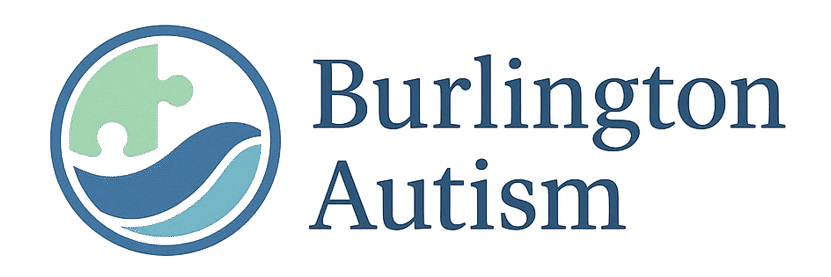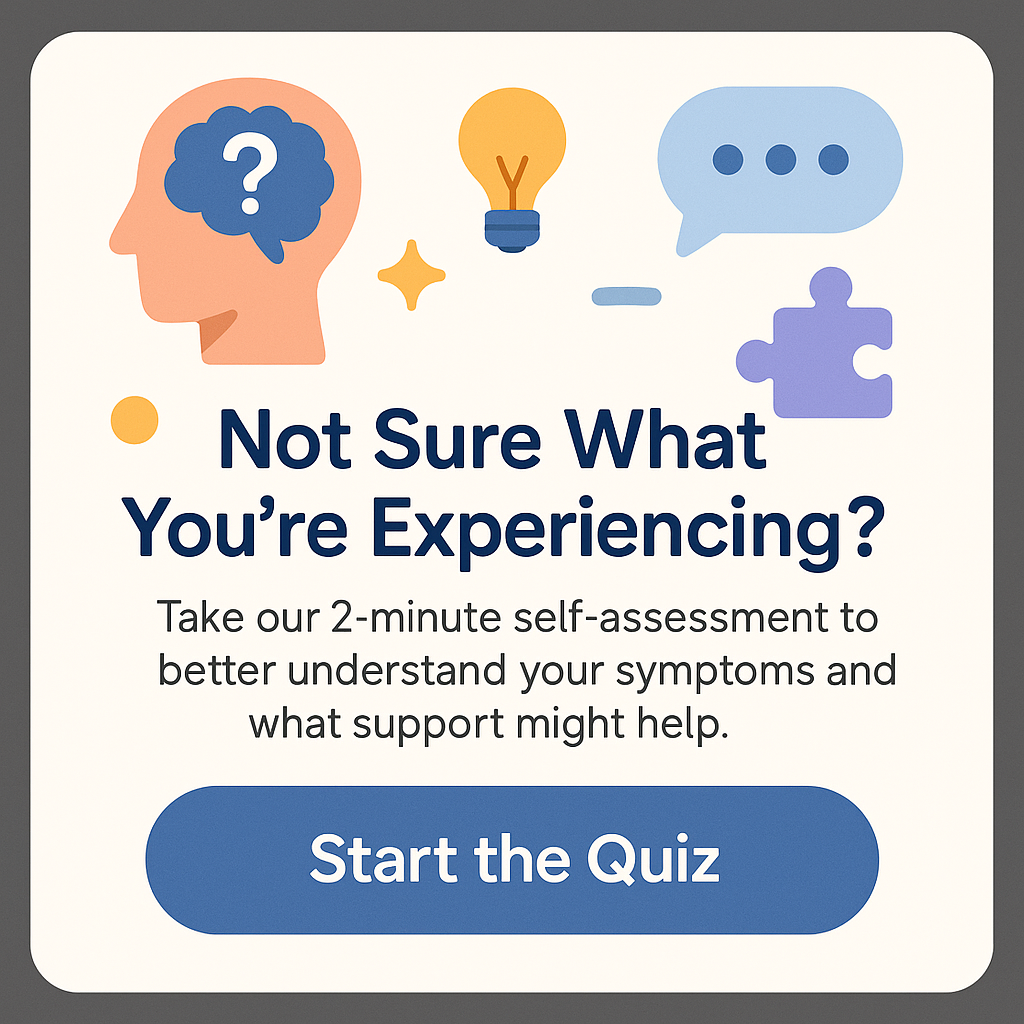How can you tell if you are neurodivergent?
Wondering how you can tell if you are neurodivergent? Discover the signs and traits of neurodiversity. Click to learn more!
Neurodiversity is a term that’s been gaining traction in recent years as people seek to understand and embrace different cognitive styles and ways of functioning in the world. If you’ve ever felt out of sync with societal norms or struggled to navigate traditional systems, you might be asking yourself, “How can you tell if you are neurodivergent?” This article will delve into the qualities, traits, and experiences that commonly signal neurodivergence.
The concept of neurodivergence encompasses a variety of conditions such as autism, ADHD, dyslexia, and more. Essentially, being neurodivergent means that your brain processes information, communicates, and interacts with the world differently than what is often considered typical. This can lead to unique strengths and challenges which vary from one individual to another. Let’s explore how you can identify if you might be neurodivergent, so you can better understand yourself and find paths to thrive.
Understanding Neurodivergence
To answer the question, “How can you tell if you are neurodivergent?”, we must first grasp what neurodivergence means. Neurodivergent individuals often find themselves exploring non-traditional pathways due to their distinct processing of stimuli, emotions, and social interactions. This fundamental difference can manifest in several ways and, while it may present challenges, it often accompanies unique strengths.
For instance, an individual with ADHD might experience hyperfocus during intense moments of interest but struggle with maintaining attention during monotonous tasks. Similarly, someone on the autism spectrum may have exceptional skills in areas like pattern recognition while facing communication challenges in social settings.
Serious consideration is given to neurological functions and how they deviate from what’s classified as ‘neurotypical’. The neurodiversity movement advocates for recognizing and valuing these differences as part of the rich tapestry of human experience rather than viewing them as deficits. Understanding yourself in this context can open up new doors to self-acceptance and mental well-being.
Signs and Traits of Neurodivergence
When pondering “How can you tell if you are neurodivergent?”, it’s useful to look at recognizable signs and traits associated with various neurodivergent conditions. Consider these common indicators:
- Difficulty with Social Interactions: Many neurodivergent individuals find social cues challenging to interpret. For example, someone with autism may struggle to understand sarcasm or non-verbal communication.
- Hyperfocus or Difficulty Concentrating: While you might get immersed in a project or hobby, transitioning to unrelated tasks can feel almost impossible. This pattern is common in ADHD.
- Unique Learning Styles: Neurodivergent individuals often have specific preferences for how they absorb information. For instance, a person with dyslexia might excel in oral presentations while finding reading text more challenging.
- Sensory Sensitivities: You might be hyper-sensitive or hypo-sensitive to sensory inputs such as sound, light, or touch. People on the autism spectrum may experience discomfort in loud or crowded places.
- Strong Focus on Interests: Many neurodivergent individuals develop deep expertise in specific subjects or hobbies — think of how one might become a walking encyclopedia on a niche topic.
These traits don’t exist in isolation; rather, they can intertwine to form a comprehensive picture of an individual’s neurodivergent experience. A self-reflective approach and feedback from trusted friends and family can be valuable when evaluating these signs.
Self-Reflection and Diagnosis
So, how can you tell if you are neurodivergent? Self-reflection is a powerful way to start this journey. You might consider keeping a journal where you note experiences that feel out of alignment with neurotypical behaviors, triggers that lead to overstimulation, or instances where your approach to tasks differs from those around you. These notes can become vital when discussing your experiences with a professional.
While self-reflection provides valuable insights, a formal diagnosis may also be advantageous. Some opt to undergo psychological testing or seek evaluations from mental health professionals experienced with neurodivergent individuals. This process can help validate your experiences and offer more clarity regarding any specific conditions that might apply to you.
In recent years, the dialogue surrounding neurodivergence has shifted towards acceptance rather than just diagnosis. However, understanding your personal challenges, learning style, and strengths contributes to a more empowered sense of self.
Finding Community
In your quest to understand “How can you tell if you are neurodivergent?”, one of the treasures you might discover is the community of neurodivergent individuals. Engaging with others who have similar experiences can provide encouragement, empowerment, and understanding.
Online forums, local meetups, and social media groups are great places to connect. Hearing others’ stories can illuminate your own journey and allow you to feel validated in ways you never expected. Being a part of a community can help combat feelings of isolation and provide practical advice and tips for navigating a world that often misunderstands neurodiversity.
Additionally, resources like books, podcasts, and documentaries can deepen your understanding of yourself. Learning about influential neurodivergent figures—like Albert Einstein or Agatha Christie—can inspire you to embrace your unique way of thinking.
Strategies for Navigating Life as a Neurodivergent Individual
Once you have a sense of your neurodivergence, your next question might be: How can you lead a fulfilling life? Here are some effective strategies for navigating daily life:
- Leverage Your Strengths: Identify your unique abilities and utilize them to your advantage. If you excel in visual thinking, for instance, consider careers that value those skills.
- Develop Routines: Having a structured daily routine helps instill a sense of predictability, which many neurodivergent individuals find comforting.
- Mindfulness Practices: Mindfulness exercises, such as meditation and deep breathing, can help in recalibrating your focus when life becomes overwhelming.
- Communicate Your Needs: Whether it’s at work, school, or social settings, don’t hesitate to express your needs to those around you. This fosters better understanding and support.
- Seek Professional Support: Engage with therapists or coaches who specialize in neurodiversity to help you navigate life’s challenges effectively.
Implementing these strategies can set you on a path of self-discovery and create a supportive environment where you can thrive.
Breaking Stigma Around Neurodivergence
Finally, as you ponder “How can you tell if you are neurodivergent?”, it’s crucial to understand the importance of breaking stigma surrounding neurodiversity. Historically, diagnostic labels have been perceived negatively, leading to misunderstandings about neurodivergent individuals. Education and awareness are key to combating this stigma.
By openly discussing neurodiversity and sharing experiences, we pave the way for a more inclusive society where everyone is valued, regardless of cognitive differences. As neurodivergent individuals, advocating for oneself and others can help reshape perceptions and foster acceptance.
Advocate for policies that support neurodivergent individuals in various sectors including education and employment. Encourage workplaces to adopt neurodiversity-friendly practices, such as flexible work arrangements or quiet spaces, that cater to different sensory needs. The more we educate and advocate, the more we dismantle the misconceptions that often cloud understanding.
Conclusion
In conclusion, asking, “How can you tell if you are neurodivergent?” is a vital step on the path to understanding yourself. Nervousness about being different is natural, but embracing your unique brain can lead to incredible opportunities for growth and connection. By examining traits, seeking resources, and reaching out to community members, you can cultivate a supportive framework around yourself.
The journey into understanding neurodivergence leads beyond mere labels toward a richer awareness of the spectrum of human experiences. Remember — you’re not alone in this adventure! Celebrate your distinct perspective and the gifts it brings to your life and the lives of others.
Frequently Asked Questions
1. What does it mean to be neurodivergent?
Neurodivergent refers to people whose neurological development and functioning differ from what is typically expected. This term covers a range of conditions including autism, ADHD, dyslexia, and more.
2. Can neurodivergence be diagnosed?
Yes! Many neurodivergent conditions can be diagnosed through assessments conducted by qualified mental health professionals.
3. How can I find support as a neurodivergent individual?
Connecting with online communities, seeking local support groups, and engaging with mental health professionals are great ways to find support.
4. Are there advantages to being neurodivergent?
Absolutely! Neurodivergent individuals often possess unique strengths and skills that can lead to success in certain fields and creative pursuits.
5. How can I advocate for myself as a neurodivergent individual?
Effective self-advocacy involves understanding your needs, effectively communicating them to others, and being open to sharing your experiences to educate those around you.
Is Autism a Disability? Understanding the Spectrum
Can someone with autism drive in Ontario?
Is it Autism or ADHD? Understanding the Differences and Similarities







